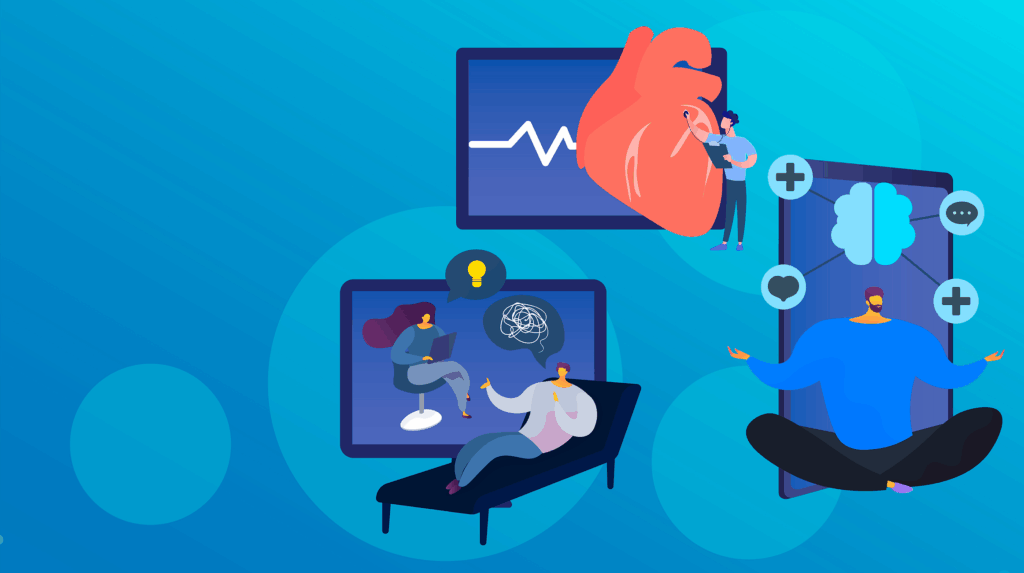
In the wake of the COVID-19 pandemic, people around the world have faced unprecedented challenges to their mental health. Prolonged isolation, economic uncertainty, and sudden changes in daily life have all contributed to soaring anxiety levels. Global post-pandemic anxiety now affects individuals from all walks of life. This guide delves into the psychological roots, social factors, and emerging trends behind this surge, while offering practical, evidence-based strategies to help you manage and overcome anxiety. Whether you are a mental health professional or simply looking for support, this comprehensive resource provides insightful perspectives and actionable solutions to help you navigate these challenging times.
Understanding Global Post-Pandemic Anxiety
In recent years, the world has seen an unprecedented surge in anxiety disorders, a trend closely linked to the post-pandemic environment. The sudden transition from normal life to lockdowns – coupled with constant health worries – has left a deep mark on the global collective psyche. Understanding the roots of this anxiety involves delving into both the immediate stressors and the long-lasting psychological effects experienced worldwide.
This section explores how the pandemic uncovered unresolved mental health issues that many had pushed aside for years. By recognizing the signs and acknowledging the personal and societal disruptions caused by COVID-19, both individuals and mental health professionals gain a better understanding of why anxiety disorders have spiked. Studies indicate that disruptions in daily routines and widespread isolation have compounded vulnerabilities that were once hidden.
Moreover, the stigma surrounding mental illness has intensified during the pandemic, discouraging many from seeking help. As we analyze these issues, we will also look at personal stories and social narratives that illustrate the complex nature of post-pandemic anxiety. The blend of personal loss and uncertainty about the future has created a unique set of challenges that continues to test our resilience.
The Emergence of New Stressors
With the sudden halt in daily routines, entirely new stressors have emerged. Fears of infection, the impact of social distancing, and widespread financial instability all contribute to an ever-present sense of unease, making it difficult for many to regain their footing.
In this context, even individuals who never before experienced significant anxiety are now struggling with chronic stress. Recognizing these new stressors early is key to preventing long-term mental health issues.
Long-Term Psychological Impact
The effects of a global crisis like the pandemic are both profound and enduring. Experts warn that the current surge in anxiety might pave the way for an increase in chronic mental illnesses over time, making early intervention more important than ever.
Research from leading health organizations, including the World Health Organization, shows that prolonged feelings of stress can change brain chemistry and behavior. These findings highlight the importance of early intervention and continuous mental health support in the post-pandemic era.
Psychological Factors and Societal Impact

The dynamic between individual psychology and societal pressures is central to the rise in post-pandemic anxiety. Isolation during lockdowns and fear of an uncertain future have amplified feelings of dread and uncertainty. Psychological factors are closely linked to our social environment, further complicating the recovery process.
For many, the loss of routine, reduced social interactions, and constant exposure to negative news have eroded mental stability. The need for human connection is fundamental, and the sudden break in support networks has left many emotionally vulnerable. Mental health services worldwide report a significant increase in demand.
Additionally, economic downturns and job insecurities have deepened the crisis for vulnerable populations. Multiple stressors—from financial concerns to isolation—create a perfect storm for anxiety disorders, underscoring the urgent need for support and intervention.
The Role of Media and Information Overload
In today’s digital landscape, constant exposure to alarming news and social media can intensify feelings of anxiety. The overwhelming influx of information makes it hard to differentiate between reliable data and sensationalism, which in turn can harm mental well-being.
Experts suggest setting clear boundaries for media consumption as a critical strategy to mitigate anxiety. Understanding how our brains process information can further help in reducing the impact of this overload.
Societal Isolation and Its Aftermath

The enforced social isolation has left lasting marks on communities worldwide. The breakdown of support systems has not only increased mental health issues but also created barriers to emotional expression and validation.
While virtual interactions have provided some relief, they cannot completely replace in-person connections. This reality reinforces the need for comprehensive mental health care and community outreach programs to help restore social bonds.
Effective Strategies for Managing Anxiety
Handling post-pandemic anxiety requires a blend of personal initiative and community support. From traditional psychological interventions to modern self-help techniques, there is a broad spectrum of strategies available. Adopting effective management techniques—from mindfulness practices to professional therapy—can offer multiple pathways to recovery.
Many experts now recommend combining classic cognitive-behavioral methods with innovative digital therapies. With the rise of teletherapy and mental health apps, these accessible resources help bridge the gap for those unable or reluctant to seek in-person assistance. Keeping a structured daily routine, staying physically active, and engaging socially are also integral parts of managing anxiety.
A cornerstone of effective anxiety management is self-awareness. Identifying early signs of anxiety empowers individuals to take proactive steps before symptoms become overwhelming. In this section, we will explore various methods designed to help you navigate anxiety with discipline and compassion.
The Role of Technology and Future Trends

Technology now plays a dual role in the battle against post-pandemic anxiety—it can both contribute to stress and offer innovative solutions. While overexposure to digital media might heighten anxiety, emerging tech tools are transforming mental health care. Modern technology provides powerful resources that facilitate access to support networks and personalized care.
Digital therapy platforms and mobile applications are at the forefront of this mental health revolution. Advances in artificial intelligence and data analytics now allow for bespoke mental health plans tailored to individual needs. Researchers remain optimistic about the long-term benefits these digital solutions offer.
In addition, virtual reality is emerging as a promising tool for both exposure therapy and relaxation techniques. These immersive experiences help users gradually reduce anxiety by confronting stressors in a controlled environment. This seamless blend of technology and psychotherapy points to a hopeful future for mental health interventions.
Digital Therapies and Mobile Solutions
Telemedicine and app-based mindfulness programs offer immediate support while continuously monitoring mental health.
These innovative tools bridge the gap between conventional therapy and self-care, providing round-the-clock access to necessary resources.
Emerging Technologies in Mental Health
Virtual and augmented reality therapies are in the early stages of integration into mainstream mental health care, offering immersive methods to reduce anxiety responses.
Looking ahead, the fusion of technology with traditional therapeutic approaches promises to enhance the overall effectiveness of mental health treatments.
Case Studies and Real-Life Experiences
Real-life stories and case studies are vital for understanding the complex nature of post-pandemic anxiety. In this section, we explore personal narratives from various parts of the world that illuminate how individuals cope with persistent anxiety. These personal accounts are not only inspiring but also provide practical insights into the resilience of the human spirit.
One striking example follows a healthcare worker who, despite continuous exposure to traumatic events, found solace through a blend of self-care and professional support. Another narrative highlights a small business owner who, despite facing crippling anxiety due to financial uncertainties, gradually regained control through community support and targeted therapy.
These stories underscore the shared challenges of post-pandemic anxiety and showcase the power of personalized coping strategies. By sharing these experiences, we encourage others to seek help, remain determined, and embrace innovative methods to manage anxiety effectively.
Healthcare Worker: Finding Strength Amidst Chaos
A dedicated nurse from New York recounts how the relentless pace during the peak of the pandemic nearly overwhelmed her. By incorporating mindfulness and regular therapy sessions, she achieved a gradual yet steady recovery.
Her journey illustrates that even in the most challenging circumstances, personal determination paired with professional guidance can make a significant difference.
Small Business Owner: Rebuilding in a Post-Pandemic World

A London-based small business owner experienced severe anxiety fueled by financial instability and uncertainty. Through community support groups and online therapy, he was able to implement practical strategies that restored his confidence and sense of control.
His experience reinforces the vital role of community support and flexible therapy solutions in overcoming anxiety.
Content Additional
To deepen our understanding of global post-pandemic anxiety, it is important to explore additional insights from recent research, expert opinions, and innovative practices. Anxiety has not only affected individual lives but has also sparked significant academic and clinical interest on a global scale. Emerging research offers fresh perspectives on how environmental stressors and genetic predispositions interact to shape anxiety disorders.
Recent studies have examined the neurobiological basis of heightened anxiety, revealing that chronic stress can alter neural pathways and hormonal balances. These scientific advances open new avenues for targeted interventions, such as neurofeedback and biofeedback therapies. By merging traditional therapeutic practices with these cutting-edge technologies, future mental health treatments might become more effective and personalized.
Moreover, community-based initiatives and government-backed mental health programs are gaining traction worldwide. These efforts aim to de-stigmatize mental health issues and ensure timely intervention through public campaigns and educational programs. As global awareness grows, early detection and refined therapeutic approaches promise to prevent anxiety from escalating into more severe conditions. Building resilient communities and enhancing mental health literacy remain at the heart of these progressive initiatives, marking our collective commitment to healing in the post-pandemic era.
As the world continues to grapple with the long-term effects of the pandemic, addressing global post-pandemic anxiety remains a critical priority. By understanding the psychological and societal factors behind rising anxiety and by applying proven coping strategies, individuals and communities can start to heal. Global mental health is a shared responsibility – by staying informed, seeking help, and embracing innovative technologies, we can build a resilient and hopeful future. This guide is just the beginning, as continuous learning and adaptation are essential for maintaining long-term mental well-being.




